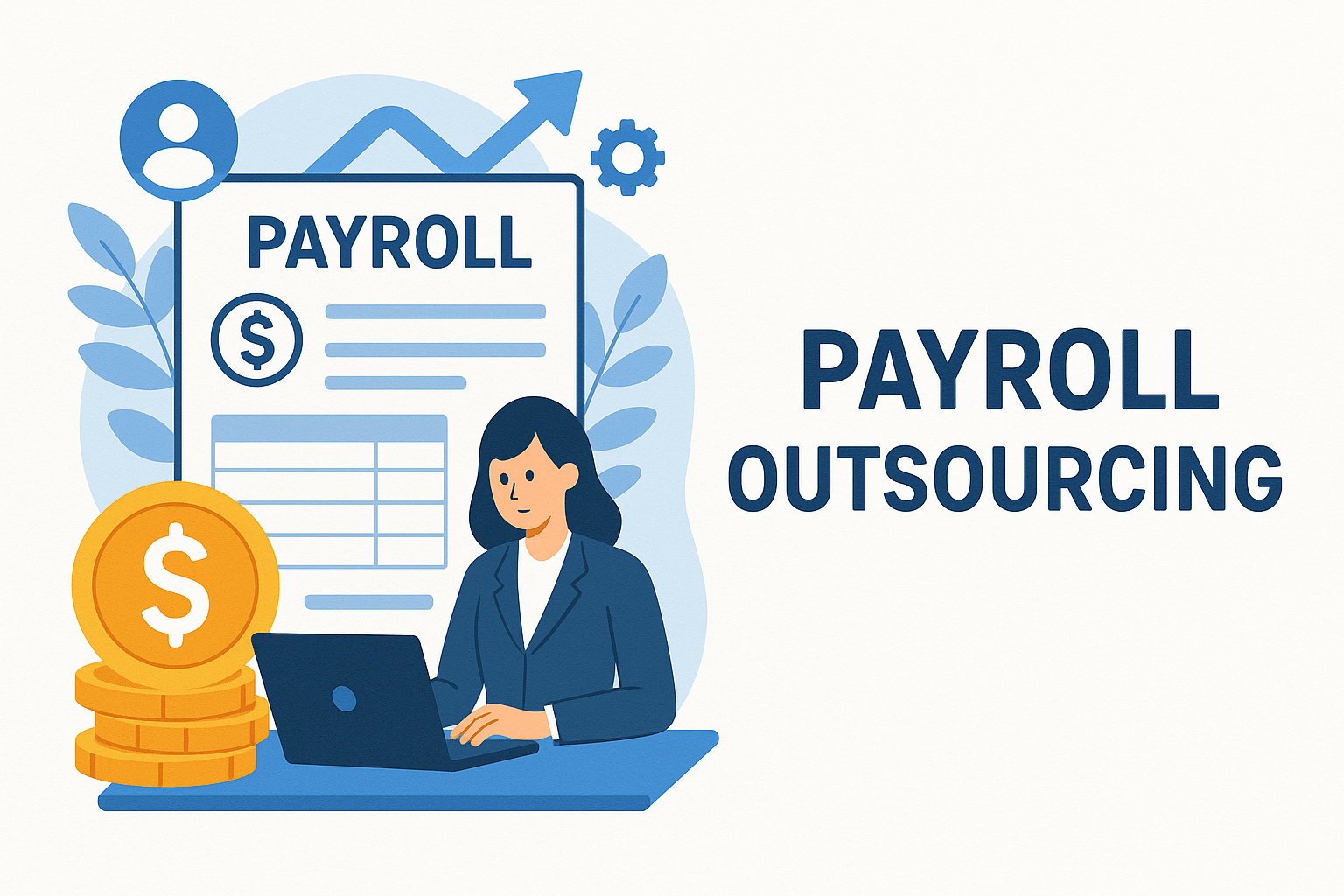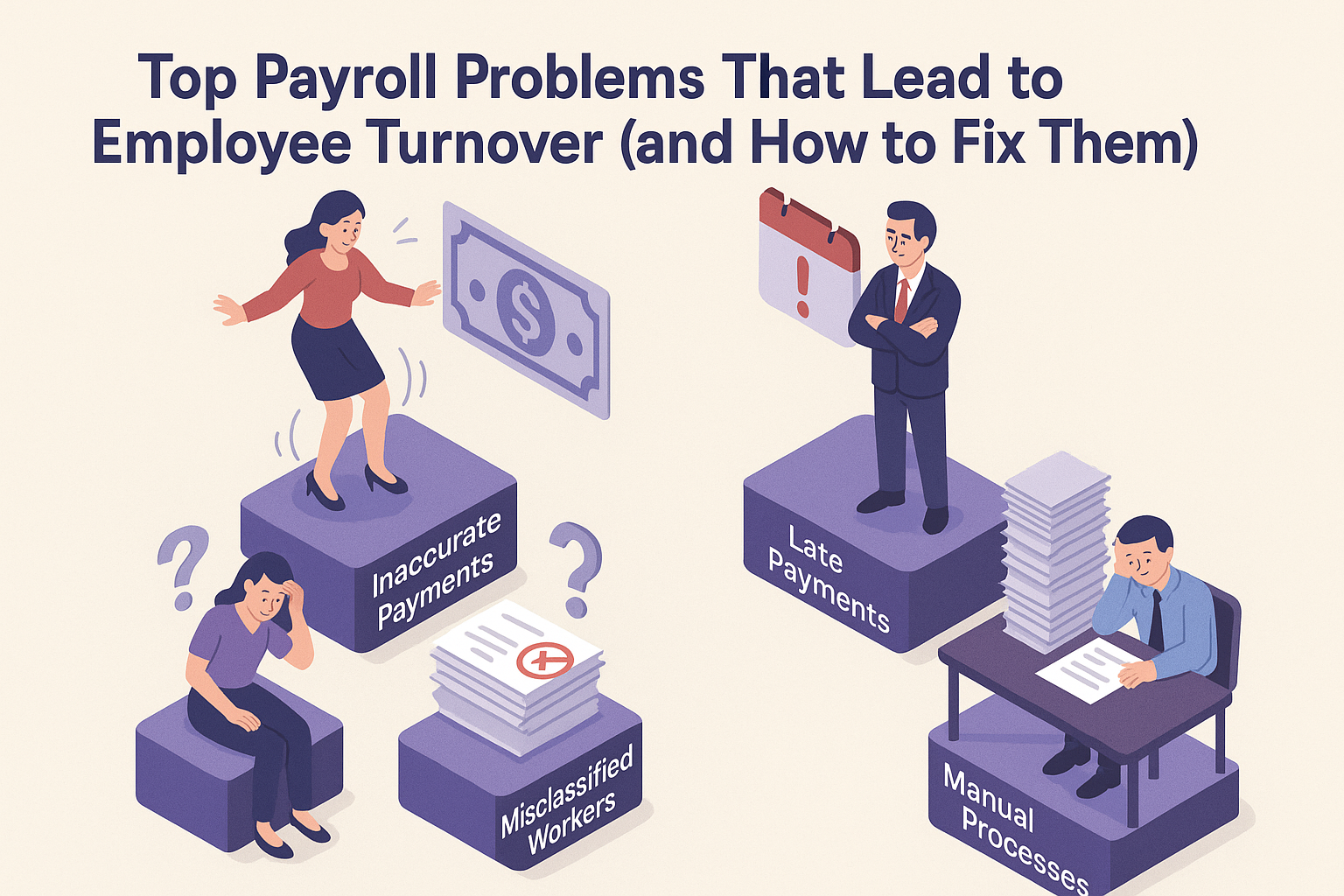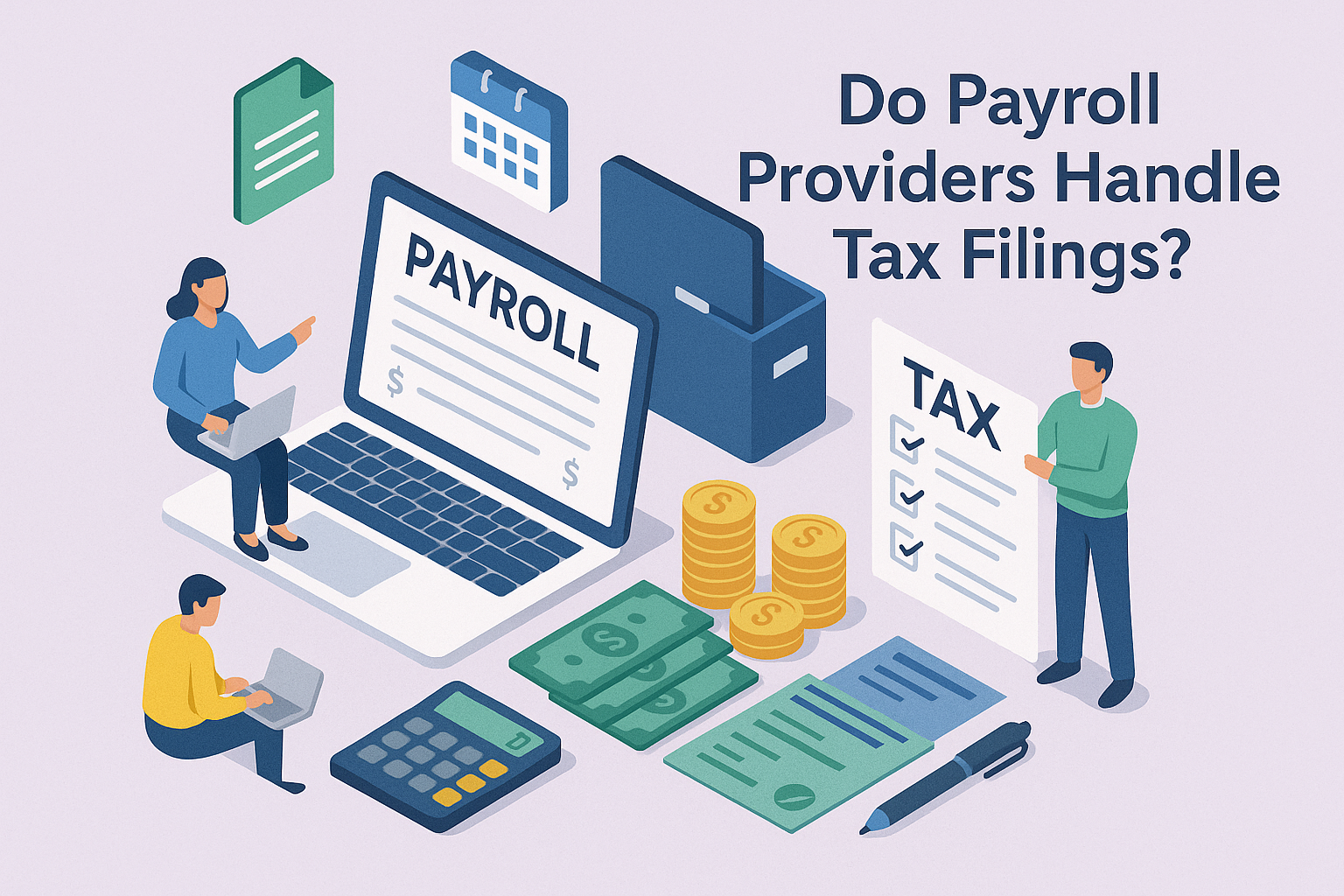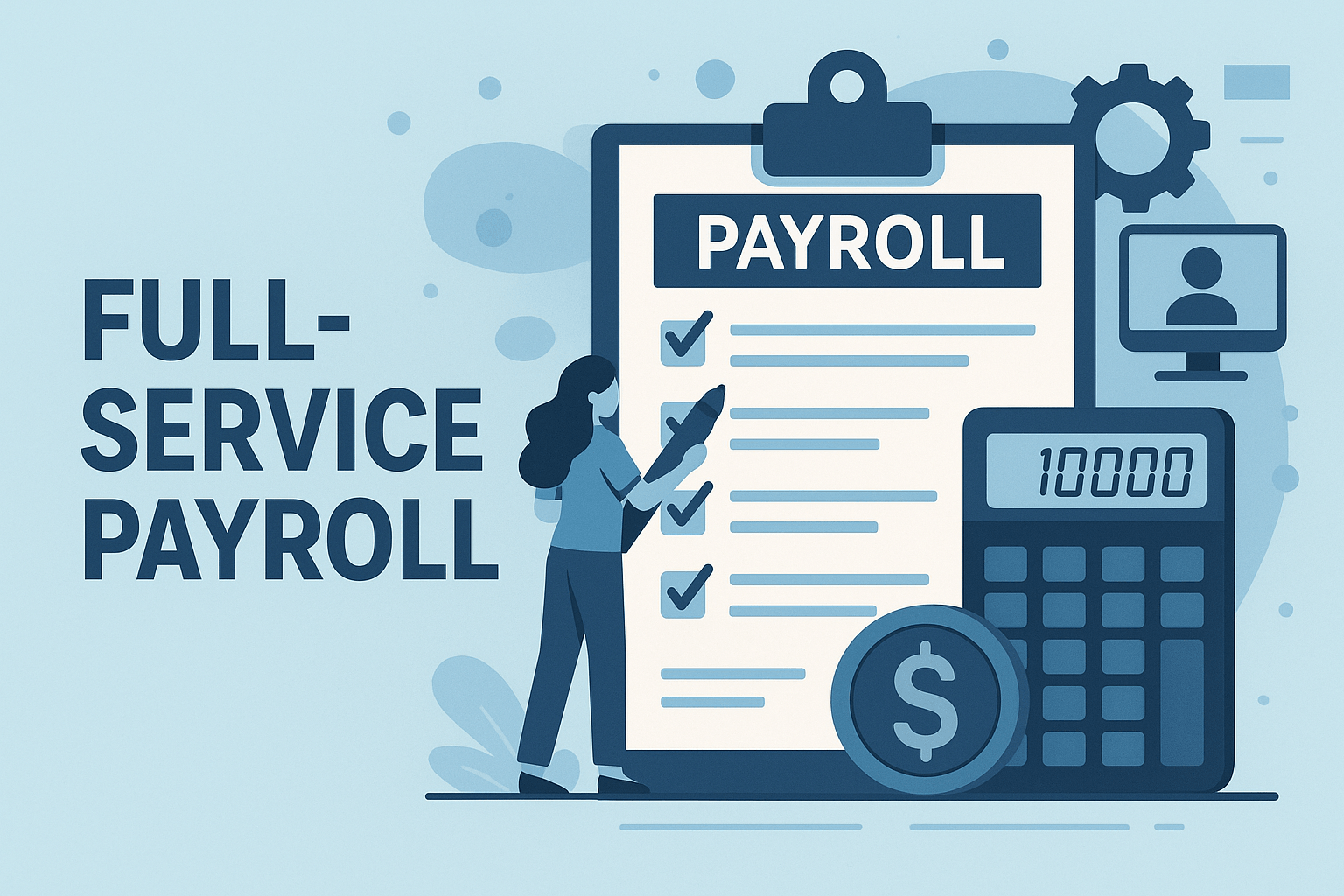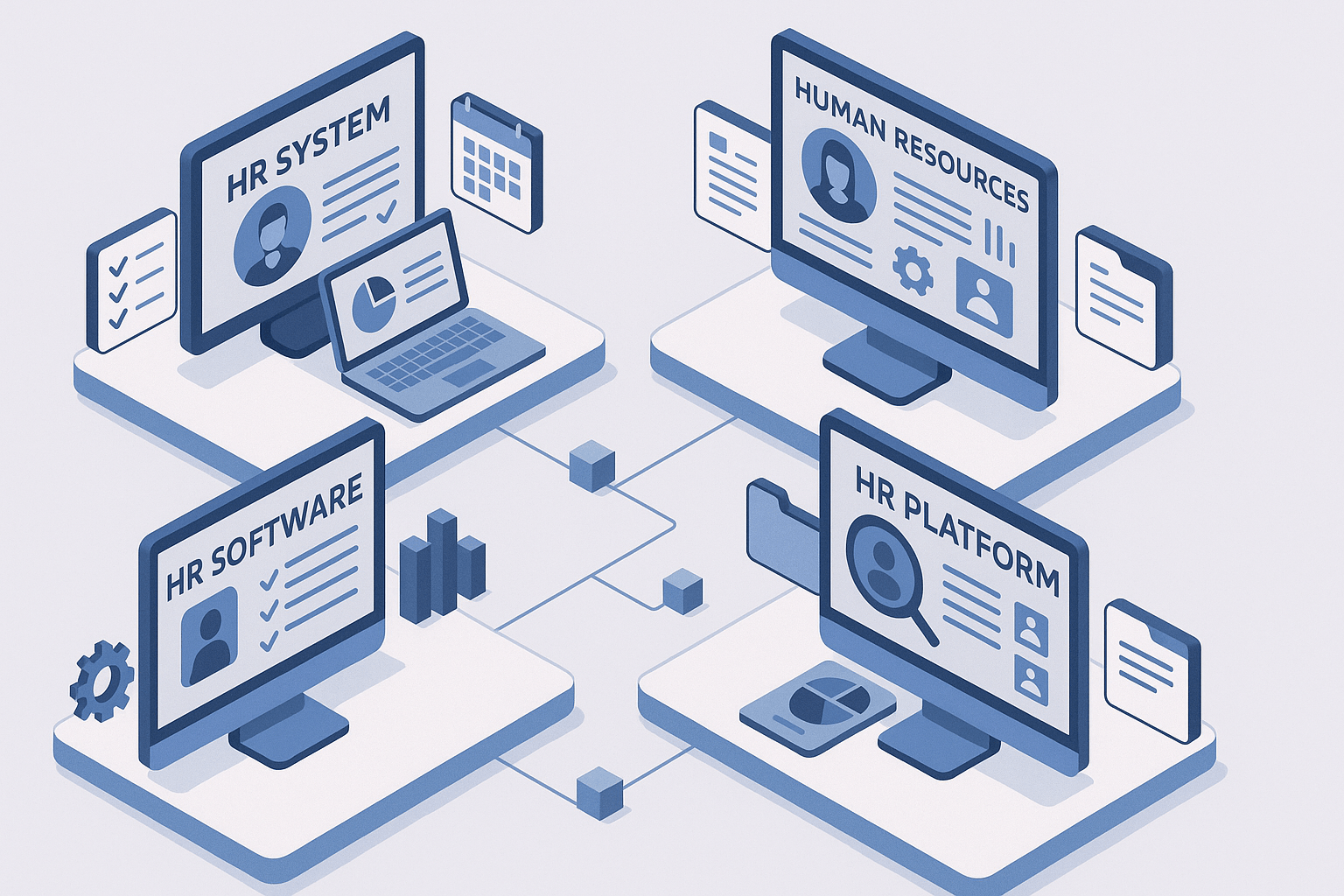Payroll Taxes in Illinois - What Business Owners Need to Know
August 2nd, 2024
7 min read
By Jim Kapolas

Running a business in Illinois comes with its fair share of responsibilities, and payroll taxes are among the most critical. If you're a business owner, you might feel overwhelmed by the complex maze of federal and state payroll taxes you must navigate. It's not just about paying your employees on time—there are forms to file, deadlines to meet, and rules to follow. You're likely asking yourself, "How can I manage all these taxes without losing my mind or risking penalties?"
At Lift HCM, we've been where you are. With years of experience in payroll management and tax compliance, we have helped countless businesses navigate the intricate landscape of payroll taxes, specifically Illinois payroll taxes. Our team of experts understands the nuances of Illinois tax laws and the challenges employers face. We've distilled this expertise into straightforward, actionable guidance simplifying payroll tax management.
In this article, we will break down each type of payroll tax, provide calculation examples, highlight key filing deadlines, and offer practical solutions to common challenges.
Table of Contents
- What Are Payroll Taxes?
- Overview of Federal Payroll Taxes
- Understanding the Breakdown: A Fictional Example
- Understanding Illinois State Payroll Taxes
- Filing Federal Payroll Tax Returns
- Filing Illinois State Payroll Tax Returns
- Important Deadlines for Payroll Tax Filing
- Best Practices for Managing Payroll Taxes in Illinois
- Simplify Payroll Tax Management in Illinois with Lift HCM
What Are Payroll Taxes?
Payroll taxes are the taxes employers withhold from employees' wages and pay on behalf of their employees. These include federal, state, and sometimes local taxes, such as income tax, Social Security tax, and Medicare tax. Additionally, employers typically bear the cost of unemployment taxes.
The primary payroll taxes in Illinois are federal income tax, Social Security and Medicare taxes (FICA), state income tax, and state unemployment insurance (SUI) tax.
Overview of Federal Payroll Taxes
Federal payroll taxes are those you withhold from your employee's wages and pay to the federal government on their behalf. These taxes are crucial because they fund essential programs like Social Security and Medicare. Here's a closer look at the main federal payroll taxes you need to deal with:
Federal Income Tax Withholding
Every paycheck, you withhold federal income tax from your employee's wages. The amount depends on the employee's earnings and the information they provided on their W-4 form. This tax goes toward the employee's federal annual income tax liability.
Social Security and Medicare Taxes (FICA)
The Federal Insurance Contributions Act (FICA) mandates that both employers and employees contribute to Social Security and Medicare. As an employer, you match the amount your employees pay. The current tax rates are:
- Social Security: 6.2% from both employer and employee, up to a wage limit.
- Medicare: 1.45% from both employer and employee, with no wage limit. For high earners, an additional 0.9% is withheld from employees.
Federal Unemployment Tax Act (FUTA)
FUTA tax is paid by employers to fund state workforce agencies. It provides unemployment compensation to workers who have lost their jobs. The FUTA tax rate is 6.0% on the first $7,000 of an employee's wages. However, you may receive a credit of up to 5.4% if you pay your state unemployment taxes on time, reducing the effective rate to 0.6%.
Understanding the Breakdown: A Fictional Example
Disclaimer: This example is a simplified overview and does not account for all potential tax deductions, credits, or complexities. Actual tax calculations can be intricate and may require professional assistance.
Fictional Employee: Alex
- Job: Software Engineer
- Annual Salary: $75,000
- Filing Status: Single
- Allowances Claimed on W-4: 2
Breakdown of Federal Income Tax Withholding
1. Gross Pay:
- Alex's annual salary is $75,000.
- Assuming he's paid bi-weekly, his gross pay per paycheck is $75,000 / 26 = $2,884.62.
2. Federal Income Tax Withholding:
- The amount withheld for federal income tax depends on factors like filing status, allowances, and pay frequency.
- For this example, let's assume that based on Alex's W-4, $350 is withheld from each paycheck.
3. Social Security Tax:
- This is 6.2% of the first $160,200 of wages.
- For this paycheck, Social Security tax is $2,884.62 * 6.2% = $178.79.
4. Medicare Tax:
- This is 1.45% of all wages.
- For this paycheck, Medicare tax is $2,884.62 * 1.45% = $41.83.
Summary of Deductions
- Gross pay: $2,884.62
- Federal income tax: $350.00
- Social Security tax: $178.79
- Medicare tax: $41.83
- Total deductions: $570.62
- Net pay: $2,884.62 - $570.62 = $2,314.00
Important Notes
- FUTA Tax: This is a tax paid by employers, not employees.
- State and Local Taxes: Many states and localities also impose income taxes, which would further reduce net pay.
- Other Deductions: Employees might have additional deductions like health insurance premiums, retirement contributions, or dependent care.
- Tax Brackets: The federal income tax system is progressive, meaning tax rates increase as income rises. This example uses a simplified withholding method.
- Tax Adjustments: Employees can adjust their W-4 form throughout the year to match their tax situation more accurately.
Using Payroll Software: Most businesses use payroll software to accurately calculate and withhold taxes. These systems incorporate tax tables and employee information to determine the correct amounts.
Additional Considerations:
- Dependent Care: Employees with dependent children may qualify for tax credits or deductions.
- Itemized Deductions: Instead of taking the standard deduction, employees can itemize deductions like mortgage interest, state and local taxes, and charitable contributions.
- Tax Planning: Consulting with a tax professional can help individuals optimize their tax situation.
Remember: This is a basic overview. Tax laws can be complex, and it's essential to consult with a tax professional for personalized advice.
Understanding Illinois State Payroll Taxes
In addition to federal taxes, Illinois requires employers to handle state-specific payroll taxes. Here's what you need to know about Illinois state payroll taxes:
Illinois State Income Tax Withholding
You must withhold Illinois state income tax from your employee's wages like federal income tax. The state income tax rate in Illinois is a flat 4.95%. You must remit these taxes to the Illinois Department of Revenue (IDOR).
Illinois Unemployment Insurance (UI) Tax
Illinois employers also pay unemployment insurance tax to the state. This is called the State Unemployment Insurance (SUI) Tax. This tax helps fund unemployment benefits for workers who lose their jobs. The rate you pay depends on your business's industry and your experience with unemployment claims. New employers typically start with a standard rate, which can change based on the UI rate schedule published by the Illinois Department of Employment Security (IDES). Below is a table highlighting the amounts withheld from different tax types.
|
Tax Type |
% Withheld |
|
Federal Income Tax |
Employers withhold based on the employee’s Form W-4 |
|
Social Security |
6.2% |
|
Medicare |
1.45% (Additional 0.9% for wages over $200,000) |
|
Illinois State Income |
Flat rate of 4.95% |
|
State Unemployment Insurance |
Rate varies by employer’s experience rating and unemployment claims |
Other Relevant Payroll Taxes for Illinois Employers
While federal and state taxes are the primary concerns, there are other payroll-related taxes and deductions you might encounter:
Local Payroll Taxes
Some municipalities in Illinois may impose additional payroll taxes. You must check with local tax authorities to ensure you comply with any local tax obligations.
Get facts about taxes in your state and around the U.S.! Check out all of the tax data in your state.
Miscellaneous Payroll Deductions
Depending on your business and employee agreements, you might also handle other deductions such as health insurance premiums, retirement plan contributions, and wage garnishments. These aren't taxes per se but crucial parts of payroll management.
Filing Federal Payroll Tax Returns
Now that you understand the basics of the taxes involved, let's talk about filing returns. Filing accurately and on time is crucial to avoid penalties.
Form 941: Employer's Quarterly Federal Tax Return
Form 941 reports income taxes, Social Security tax, and Medicare tax withheld from employees' wages. You'll also report your share of Social Security and Medicare taxes. This form is filed quarterly, and it's crucial to ensure that all the information is accurate to avoid discrepancies.
Form 940: Employer's Annual Federal Unemployment (FUTA) Tax Return
Form 940 is filed annually and covers the FUTA tax. This form is relatively straightforward compared to others, but ensuring that all payments and credits are accurately reported is essential.
Form W-2 and Form W-3: Wage and Tax Statements
At the end of the year, you must provide each employee with a Form W-2 detailing their earnings and the taxes withheld. Additionally, you’ll submit Form W-3 to the Social Security Administration, summarizing all W-2 forms issued.
Filing Illinois State Payroll Tax Returns
Just like with federal taxes, you need to file specific returns for Illinois state payroll taxes.
IL-941: Illinois Withholding Income Tax Return
IL-941 is the form you use to report the state income tax you’ve withheld from your employee's wages. This form can be filed quarterly or monthly, depending on your total tax liability.
UI-3/40: Employer’s Contribution and Wage Report
UI-3/40 is used to report wages and unemployment insurance taxes. This form is filed quarterly with the Illinois Department of Employment Security. Accurate wage reporting ensures your UI tax rate is correctly calculated.
|
Form |
File Date |
Details |
|
Quarterly |
Employer's Quarterly Federal Tax Return. Reports income taxes, Social Security tax, and Medicare tax withheld from employees' wages and the employer’s share of these taxes. |
|
|
Annually |
Employer's Annual Federal Unemployment (FUTA) Tax Return. Covers the FUTA tax. Ensures accurate reporting of payments and credits. |
|
|
Annually |
Wage and Tax Statement. Provided to each employee at the end of the year, detailing their earnings and the taxes withheld. |
|
|
Annually |
Transmittal of Wage and Tax Statements. Submitted to the Social Security Administration, summarizing all W-2 forms issued. |
|
|
Quarterly or Monthly |
Illinois Withholding Income Tax Return. Used to report state income tax withheld from employees' wages. |
|
|
Quarterly |
Employer’s Contribution and Wage Report. Used to report wages and unemployment insurance taxes. Ensures correct UI tax rate calculation. |
Important Deadlines for Payroll Tax Filing
Missing deadlines can result in hefty penalties. Here’s a quick overview of key deadlines:
Federal Payroll Tax Deadlines
- Form 941: Due by the last day of the month following the end of the quarter.
- Form 940: Due by January 31st of each year.
- Form W-2 and W-3: Provide W-2s to employees by January 31st and file W-3 with the SSA by the same date.
Illinois State Payroll Tax Deadlines
- IL-941: Due by the last day of the month following the end of the reporting period (quarterly or monthly).
- UI-3/40: Due by the last day of the month following the end of the quarter.
Penalties for Non-Compliance with Payroll Taxes
Failing to comply with payroll tax obligations can result in significant penalties, both federally and at the state level.
Federal Penalties
- Late Filing: Up to 25% of the unpaid tax, depending on how late the return is filed.
- Late Payment: Typically, 0.5% of the unpaid tax per month, up to 25%.
- Accuracy-Related Penalties: Up to 20% of the underpaid amount for inaccuracies.
Illinois State Penalties
- Late Filing and Payment: Similar to federal penalties, Illinois imposes penalties based on the amount and length of time the taxes are unpaid.
- Failure to Withhold: Additional penalties may apply if you fail to withhold state income tax from employees’ wages.
Best Practices for Managing Payroll Taxes in Illinois
Managing payroll taxes can be daunting, but implementing best practices can help streamline the process.
Utilizing Payroll Software
Payroll software can automate tax calculations, ensure accurate withholdings, and remind you of important deadlines, reducing the risk of errors and penalties.
Hiring a Professional Payroll Service Provider
Consider hiring a payroll service to handle the complexities of payroll taxes. These services are experts in compliance and can save you time and stress.
Staying Updated with Tax Law Changes
Tax laws change frequently. Stay informed by subscribing to IRS and Illinois Department of Revenue updates, and consider consulting with a tax professional regularly.
Simplify Payroll Tax Management in Illinois with Lift HCM
Payroll taxes are a critical part of running a business in Illinois. While they can be complex and daunting, understanding your obligations and staying organized can make the process much smoother. You can ensure compliance and avoid costly penalties by leveraging tools like payroll software, considering professional services, and keeping up-to-date with tax law changes.
Remember, you’re not alone in this—many businesses face the same challenges, and with the right approach, managing payroll taxes can become a manageable part of your business operations.
Take control of your payroll taxes today and ensure a smoother, more efficient process for your business. Our team of experts is ready to assist you with personalized solutions to simplify your payroll management. Contact us now! Learn more about the solutions we offer.
Jim Kapolas is the President and Owner of Lift HCM, where he drives the company's mission to provide top-tier payroll and Human Capital Management services. He co-founded Payville USA, now Lift HCM, building it into a leading independent processor in the Midwest. Prior to this, Jim co-founded Related Payroll Service (RPS), growing it to be the 9th largest processor in the U.S. Jim's leadership ensures compliance and exceptional client service delivery.


.jpg?width=1700&height=2200&name=what%20is%20FICA(1).jpg)

.png?width=1536&height=1024&name=Create%20a%20background%20that%20reads%2c%20How%20Long%20to%20Keep%20P%20(1).png)





